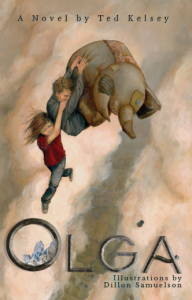The Rundown
The Recommendation
The Rating
The Links
The Reviewer
Brian L. Braden
Visit Brian L. Braden‘s website.It’s been a few weeks since my independent publishing group collapsed. It was really a writers’ “collective,” for lack of a better word. It started as a group of talented authors banding together to help create and market their work. My time there was a completely positive experience. I learned a great deal, made a few friends, and found a few readers.
Looking back, I should have seen the end coming. Why did it die? A few of my fellow authors have written excellent blogs about what went wrong, so I’m not going to cover that ground again. I’ll just summarize by saying we didn’t really have a plan. Lots of talent and good intentions, but no real plan. With the clarity of hindsight, I tried to capture some generic lessons I learned, and come up with what I would do if I had to generate a publishing collective from scratch.
I came up with these Seven Basic Steps to creating a writers’ publishing group. Of course, these are very basic and definitely not applicable to all groups, as goals vary widely. Maybe they are too elaborate, maybe I overthought this, but if you’re going to do something, go big.
So let's go big.
1. Like any organization, someone has to be in charge. This is the guy or gal with the vision, the man with the plan, the cat herder, the carrot and the whip. This is what the group’s leader has to do as a minimum:
a. Create the brand.
b. Focus the group to support that brand.
c. Sets the rules
d. Let’s people in & kicks them out.
e. Have a plan.
2. Creating a brand starts with genre. The smaller the group, the more focused the genre must be. This is the very reason really big publishing houses have imprints. Genre is a basic component of brand identity. It’s what draws in the loyal followers. You can’t be all over the place, or you won’t attract new readers or readers from other authors.
3. Set rules and enforce standards. Yes, writing is a creative endeavor. However, when writers start hitching their wagons to each other’s novels a set of expectations is naturally established. It could be anything from “I share your post, you share mine” to “you beta-read for me, I beta-read for you.” Instead of guessing, and randomly asking or receiving requests for help, a better idea might be to formalize the process. You know, a handbook, or something like it. This also relates to publishing standards for editing, cover design and anything else that goes into a book. If you enter a writer’s collective, you live by the rules. Otherwise, thanks and there is the door. If a group is going to set rules and enforce them, they would naturally start sharing skills, talents and workload.
4. Division of labor. Authors often get overwhelmed by everything involved with publishing a book. That’s why they often join author groups. When an author joins, its best if they know where they fit and what’s expected of them. Writers are a strange lot. The only thing common among us is the urge to write. However, this also means we have diverse talents, too. Some writers are good at editing, others at cover creation, etc. When a writer petitions to join the collective, their talents need to be identified immediately. Once that is done, they are assigned to a sub-committee. These sub-groups could include, but are not limited to:
a. Manuscript management
b. Concept development
c. Editing and style guide
d. Beta-reading & Workshop
e. Pitch
f. Marketing, Blogging, Social Media, and Website
g. Cover design and art
h. Recruiting
Since the writers group is genre-focused, everyone comes with credible, applicable skills that lend to the whole. Of course, workload should be managed fairly, and might even include an agreed compensation scale. Hey, anything is possible depending what the group wants to do. Whatever you do, you need a formal process.
One important note here about money. If money for services gets bandied about within the group, arrangements should be formalized and approved by the group ahead of time. Make no assumptions.
5. Establish a Process: Your group has a leader, a solid brand, and suitable tasks for everyone. When a writer joins your group, they know they have a host of other writers to help them every step of the way, and they know exactly where they fit in the plan. Now you’ve got to create processes that takes care of your writers’ manuscripts from induction to post-publication. Whatever the process, the leader acts as a project manager of sorts, keeping the machine running, with concepts going in one end, and finished novels coming out the other. The degree to which an author hands over production of his or her manuscript to the group, is set by the rules, with no doubts of expectations.
6. Communicate! None of this works without communication. There are two forms of communication writers are good at – creative collaboration and bullshitting on Facebook. No, I’m talking about formal, disciplined communication regarding the status of writing projects as they wind their way through the pipeline toward publication. Groups and sub-committees need to meet on reoccurring basis, to get and give updates on status of projects.
7. Track results. This goes along with formal communication. It means setting metrics and tracking them. “How was that last debut?” “How are our reviews?” “How are sales on our books after one year?” Authors often suffer alone and in silence, unable to determine if what they are doing is any good. The group needs metrics to measure if what they are doing is even working. You can’t capture lessons learned and improve without metrics and communicating those to the group.
There you are, seven steps for creating an effective author writing group. If it sounds very “businessy,” it’s because it is. Authors spend enormous amounts of time writing a book, but usually screw something up during the publication process. Writing groups, if run properly, help us avoid the big mistakes, improve our craft and, maybe along the way, make some money. If you’re going to form or join a writing group, remember the purpose is to help you write better, edit better, better covers, better sales, better everything. That just doesn’t magically happen, it takes a plan.
the illusion exotic









